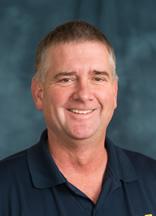
John Moran
University of Michigan
USA
EMBO Workshop
This conference will take place at EMBL Heidelberg, with the option to attend virtually. Please see EMBL’s COVID-19 safety recommendations if attending the on-site event.
This conference assembles world-leading experts from diverse fields including genomics, epigenetics, structural biology, developmental biology, immunology, cancer biology, and neurobiology to discuss the broad impacts of transposable elements (TEs) on organismal biology. The meeting provides a venue for cross-disciplinary discussions, with the goal of catalysing inter-disciplinary collaborations to address emerging questions in these scientific fields.
Although often disparaged as “junk” DNA, it is now undeniable that TE activity has significantly shaped the structure and function of all genomes, ranging from bacteria to humans. TEs are major drivers of genetic diversity and contribute to human disease. Remarkably, TE-derived sequences are also often co-opted by the host to play important roles in gene expression, early development, immunity, neuronal diversification, and, perhaps, aging.
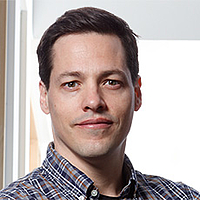
Institute of Molecular Biology
Germany

NYU Grossman School of Medicine
USA
Virtual speaker
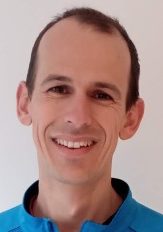
Queen Mary University of London
UK
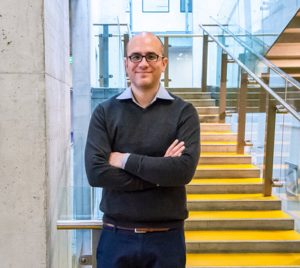
Institute of Molecular Biotechnology
Austria
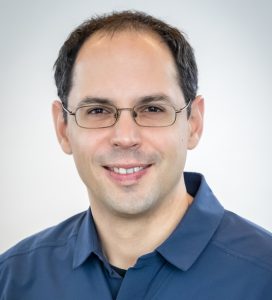
University of Neuchâtel
Switzerland
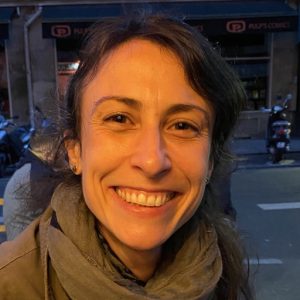
Institute of Integrative Biology of the Cell (I2BC)
France
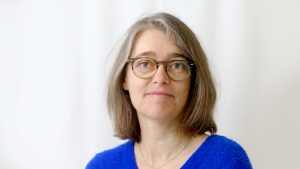
Institut Jacques Monod
France
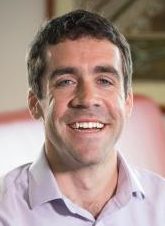
The University of Queensland
Australia

Massachusetts Institute of Technology
USA
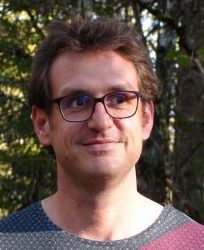
Université Paris-Saclay
France

University of Rochester
USA
Virtual speaker
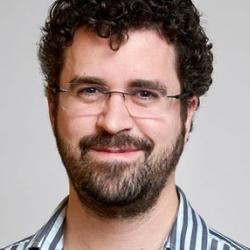
University of Cambridge
UK
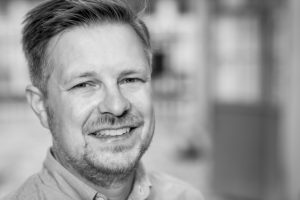
Lund University
Sweden
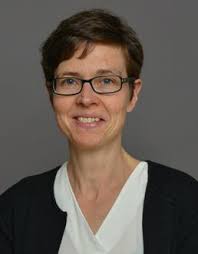
Max Planck Institute of Molecular Plant Physiology
Germany
Virtual speaker
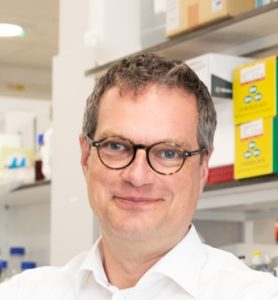
University of Cambridge
UK
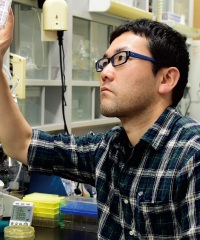
Kyoto University
Japan
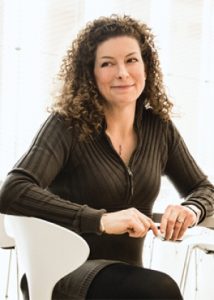
Princeton University
USA
Virtual speaker
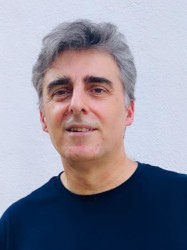
Imperial College London
UK
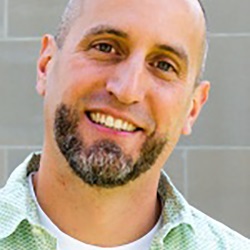
Cornell University
USA

Liverpool John Moores University
UK
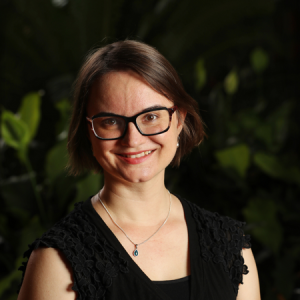
Mater Research Institute
Australia
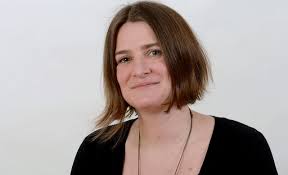
Institut Curie
France
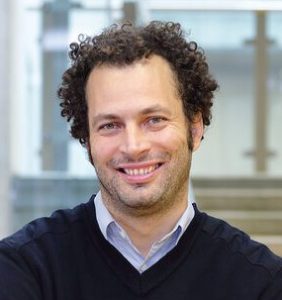
Institute of Molecular Biotechnology
Austria
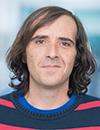
The University of Edinburgh
UK
Virtual
Got something to say? Tweet it! #EMBOMobileGenome
| Time (Europe/Berlin) | Speaker |
|---|---|
| 11:00 – 12:45 | Registration and light lunch Shuttle Bus schedule |
| 12:45 – 13:00 | Opening remarks Scientific organisers: Déborah Bourc’his – Institute Curie, France and Julius Brennecke – Institute of Molecular Biotechnology, Austria |
| 13:00 – 18:15 | Session 1: Genomics and evolution Chaired by: Julius Fabian Brennecke – Institute of Molecular Biotechnology, Austria Marianne Yoth – Aarhus University, France |
| 13:00 – 13:30 | Escapee L1s promote parvalbumin interneuron development Geoff Faulkner – University of Queensland, Australia |
| 13:30 – 13:45 | Evolution of gene regulation by species-specific transposable elements in primates Mari Ohnuki – Kyoto University, Japan |
| 13:45 – 14:00 | Protein domains from multigene families recurrently associate with domains derived from transposable elements and viruses Miguel Vasconcelos Almeida – University of Cambridge, UK |
| 14:00 – 14:30 | A Devil’s Bargain with TEs for crop pathogen adaptation Daniel Croll – University of Neuchatel, Switzerland |
| 14:30 – 15:00 | Locus-resolution analysis of L1 regulation and retrotransposition potential in mouse embryonic development Sandra Richardson – Mater Institute, Australia |
| 15:00 – 15:30 | The role of the Cer1 transposon in horizontal transfer of transgenerational memory Coleen Murphy – Princeton University, USA Virtual talk |
| 15:30 – 16:00 | Coffee break and Meet the speakers with Geoff Faulkner, Daniel Croll and Sandra Richardson |
| 16:00 – 16:15 | Exploring the contribution of transposable elements to the evolution of salamander developmental and regenerative programs Diego Rodriguez Terrones – Research Institute of Molecular Pathology, Austria |
| 16:15 – 16:30 | The silent architects of yeast genome Aleksandras Konovalovas – Vilnius University, Life Sciences Centre, Institute of Biosciences, Lithuania |
| 16:30 – 16:45 | The transcriptional repertoire of transposable elements during mammalian preimplantation development Marlies Oomen – Helmholtz Zentrum Munich Germany Not available on demand |
| 16:45 – 17:15 | Horizontal transfer of transposable elements in animals Clément Gilbert – Paris-Saclay University, France |
| 17:15 – 18:15 | Keynote speaker 1: ‘The genetics of epigenetic variation at transposable elements’ Anne Ferguson Smith – University of Cambridge, UK |
| 18:15 – 19:45 | Dinner |
| 19:45 – 21:15 | Science pub quiz (optional) – EMBL Canteen |
| 19:45 – 21:45 | After dinner drinks (optional) – ATC Rooftop Lounge |
| Time (Europe/Berlin) | Speaker |
|---|---|
| 09:00 – 20:00 | Session 2: Transposon regulation Chaired by: Déborah Bourc’his – Institut Curie, France Juliane Glaser – Max Planck Institute for Molecular Genetics, Germany |
| 09:00 – 09:30 | Architects of genomic harmony: KRAB zinc finger proteins expand the domestication potential of mobile elements Michael Imbeault – University of Cambridge, UK |
| 09:30-09:45 | Novel actors involved in chromatin-associated TE control in embryonic stem cells Emeline Roger – Institut Curie, France Not available on demand |
| 09:45 – 10:15 | H3K27me3 recruitment at Transposable Elements in Arabidopsis Angélique Deleris – I2BC, Gif sur Yvette, France |
| 10:15 – 10:30 | Comprehensive investigation of de novo insertions in piRNA clusters reveals dual functions of Panoramix in the piRNA pathway Yicheng Luo – California Institute of Technology, USA |
| 10:30 – 11:00 | Coffee break and Meet the speakers with Anne Ferguson Smith and Michael Imbeault |
| 11:00 – 11:30 | Transposable elements drive hybrid incompatibility in plants Claudia Köhler – Max Planck Institute of Molecular Plant Physiology, Germany Virtual talk |
| 11:30 – 12:00 | Regulation of TEs in the mammalian germline Joan Barau – IMB Mainz, Germany |
| 12:00 – 12:15 | Young & hot L1s in the human genome evade the host restriction factor TEX19 Ricky Padilla Del Valle – University of Washington, USA Not available on demand |
| 12:15-12:30 | Flash Talks 1 (odd numbers) #53, #54, #101, #141, #153 |
| 12:30 – 14:00 | Lunch and Meet the speakers with Joan Barau |
| 14:00 – 16:00 | Poster session 1 (odd numbers) |
| 16:00 – 16:30 | Catalytic and non catalytic functions of PRC2 in the control of transposable elements in Paramecium Sandra Duharcourt – Institut Jacques Monod, France |
| 16:30 – 16:45 | Recurrent molecular adaptation revealed by systematic cross-species protein interaction analyses of the Drosophila piRNA pathway Sebastian Riedelbauch – Aarhus University, Denmark |
| 16:45 – 17:00 | A direct protein-protein interaction network of cytoplasmic Drosophila piRNA pathway factors Mandy Jeske – Heidelberg University, Germany |
| 17:00 – 17:30 | PiRNA-mediated TE control in mammals Philip Zamore – University of Massachusetts Medical School, USA |
| 17:30 – 17:45 | A co-opted retroviral capsid defines a rapidly-evolving architectural protein family that binds to transposable elements Wayo Matsushima – École Polytechnique Fédérale de Lausanne (EPFL), Switzerland |
| 17:45 – 18:00 | Flash Talks 2 (even numbers) #92, #118, #162, #164 |
| 18:00 – 18:30 | Coffee break and Meet the speakers with Sandra Duharcourt and Philip Zamore |
| 18:30 – 19:00 | Genetics of cheating of genetics Yukiko Yamashita – MIT, Cambridge, USA |
| 19:00 – 19:30 | The role of L1 elements in promoting aging Vera Gorbunova – University of Rochester, USA Virtual talk |
| 19:30 – 19:45 | Transposon silencing in duckweeds, lessons from non-model organisms Arturo Mari-Ordonez – Gregor Mendel Institute of Molecular Plant Biology Austria |
| 19:45 – 20:00 | Structural and biochemical insights on the role of HUSH component MPP8 in transposon regulation Yorgo Modis – University of Cambridge, UK |
| 20:00 – 21:30 | Dinner |
| 21:00 – 22:30 | After dinner drinks |
| Time (Europe/Berlin) | Speaker |
|---|---|
| 09:00 – 14:00 | Session 3: Transposition mechanisms Chaired by: Orsolya Barabas – University of Geneva, Switzerland Tomoichiro Miyoshi – RIKEN, Japan |
| 09:00 – 09:30 | Redefining mobility in bacterial genetics Jose Penadés – Imperial College London, UK |
| 09:30 – 09:45 | Structure-function analysis of mammalian tRNA-derived SINEs Emily Koch – University of Michigan, USA |
| 09:45 – 10:15 | A network of interferon-stimulated genes inhibits human LINE-1 retrotransposition Tomoichiro Miyoshi – RIKEN, Japan |
| 10:15 – 10:30 | Extrachromosomal circular DNA reveals helitron activity in wheat Etienne Bucher – Agroscope, Switzerland |
| 10:30 – 11:00 | Coffee break and Meet the speakers with Yukiko Yamashita, Jose Penadés and Tomoichiro Miyoshi |
| 11:00 – 11:30 | Regulation of site-specific recombination by serine integrases Femi Olorunniji – Liverpool John Moores University, UK |
| 11:30 – 11:45 | From retroelements to retroviruses: the evolutionary plasticity of reverse-transcribing RNA viruses Haoming Zhai – University of Cambridge, UK |
| 11:45 – 12:15 | Diversity of target selection systems with Tn7-like elements from CRISPR guided transposons to bacterial telomere elements Joseph Peters – Cornell University, USA |
| 12:15 – 12:30 | The genetic and environmental basis of heritable transposition in Arabidopsis thaliana Mireia Bueno Merino – IPS2 – Paris – Saclay University, France |
| 12:30 – 12:45 | Genomic integration of SARS-CoV-2 sequences in virus infected and viral RNA transfected human cells and infection of bat iPS cells with virus Rudolf Jaenisch – Whitehead Institute, USA |
| 12:45 – 14:00 | Lunch and Meet the speakers with Femi Olorunniji and Joseph Peters |
| 14:00 – 16:30 | Session 4: Physiological impacts Chaired by: John Moran – University of Michigan, USA Stephanie Workman – Mater Research Institute, Australia |
| 14:00 – 14:30 | Structural analysis and inhibition of human LINE-1 ORF2 protein reveals novel adaptations and functions Martin Taylor – Harvard Medical School, USA |
| 14:30 – 15:00 | Giant virus-like transposons mediate widespread horizontal gene transfer in nematodes Alejandro Burga – IMBA, Austria |
| 15:00 – 15:30 | Coffee break and Meet the speakers with Martin Taylor and Alejandro Burga |
| 15:30 – 16:30 | Keynote speaker 2: Studies of a human retrotransposable element John Moran – University of Michigan, Ann Arbor, USA |
| 16:30 – 17:30 | Panel Discussion on emerging topics in TE biology Not available on demand |
| 17:30 – 19:30 | Poster session 2 (even numbers) |
| 19:30 – 21:00 | Conference dinner |
| 21:00 – 00:00 | Conference party |
| Time (Europe/Berlin) | Speaker |
|---|---|
| 09:00 – 13:15 | Session 4: Physiological impacts (continued) Chaired by: John Moran – University of Michigan, USA Stephanie Workman – Mater Research Institute, Australia |
| 09:00 – 09:15 | Co-opted endogenous retrovirus governed Pregnancy Specific Glycoprotein 9 (PSG9) locus coordinates trophoblast differentiation in human placentation Zsuzsanna Izsvak – Max Delbrück Center, Germany |
| 09:15 – 09:45 | Species specific regulation of trophoblast gene expression by endogenous retroviruses Miguel Branco – Queen Mary University of London, UK Not available on demand |
| 09:45 – 10:00 | Helitron-derived repeat structures regulate transgenerational inheritance in C. elegans Faisal Alkhaldi – King Abdullah University of Science and Technology (KAUST), Saudi Arabia |
| 10:00 – 10:30 | Transposable elements and human brain disorders Johan Jakobsson – Lund University, Sweden |
| 10:30 – 10:45 | Reverse transcriptase-related genes at the intersection of environmental stress responses Irina Arkhipova – Marine Biological Laboratory, USA Not available on demand |
| 10:45 – 11:00 | Somatic LINE retrotransposition in motorneurons has functional consequences Thomas Widmann – FIBAO (Fundación de Investigación Biosanitaria) & GENYO – Centre for Genomics and Oncological Research, Spain |
| 11:00 – 11:30 | Coffee break and Meet the speakers with John Moran, Miguel Branco, Johan Jakobsson and Eric Miska |
| 11:30 – 11:45 | Retroviral-like particles inducing cell death drive a limb developmental malformation Juliane Glaser – Max Planck Institute for Molecular Genetics, Germany |
| 11:45 – 12:15 | Great GEMMs reveal dramatic human phenotypes conferred by intronic retrotransposon insertions Jef Boeke – NYU Grossman School of Medicine, USA Virtual talk Not available on demand |
| 12:15 – 12:30 | The Drosophila retrotransposable element Copia regulates larval neuromuscular junction physiology Peter M’Angale – University of Massachusetts Chan Medical School, USA |
| 12:30 – 12:45 | Endogenous retroviruses wrestle with epigenetic surveillance to drive host pathophysiology Yejing Ge – MD Anderson Cancer Center, USA Not available on demand |
| 12:45 – 13:15 | piRNA dynamics in mammalian genomes Eric Miska – University of Cambridge, UK |
| 13:15 – 13:30 | Closing remarks |
| 13:30 – 14:00 | Packed lunch and departure |
| 14:00 | Shuttle bus to Frankfurt airport (tickets €30) |
On-site registration fees include admission, conference materials, COVID-19 safety measures, meals and coffee breaks. Participants are expected to book and pay their own accommodation and travel expenses.
Virtual registration fees include access to all of the talks (livestreamed and on demand) and facility to submit questions.
| On-site Academia | €450 |
| On-site PhD Student | €350 |
| On-site Industry | €750 |
| Virtual Academia | €200 |
| Virtual PhD Student | €150 |
| Virtual Industry | €250 |
A letter to support your visa application will be issued, on request, once payment of the registration fee is confirmed. We recommend that you book your visa appointment as soon as possible, to avoid any delay with your visa application.
Accredited journalists may be eligible to register for complimentary press registration. Registrants may be required to provide accreditation or equivalent proof of press membership after registration. Please contact Diah Yulianti for more information. Please note that we do not offer complimentary registrations for editors of scientific journals.
Registration will be on a first come, first served basis. Your place can only be confirmed after payment of the registration fee. If you are added to our waiting list, please consider taking advantage of our offerings to participate virtually.
On-site participants: Types of payments accepted are international bank transfers and credit card payments.
Virtual participants: We are only able to accept card payments. In exceptional cases we can accept bank transfers. Please contact events@embl.de for details.
Only participants registering to attend the on-site event are eligible to submit an abstract. Abstracts will not be accepted from virtual participants.
After registration you can submit your abstract via a separate link that will be provided in the email confirmation. Alternatively, you can access the link on the confirmation page directly after registering. The same login credentials are used for both processes.
Please note:
Abstract body: The limit of 2000 characters refers to manually typed text and excludes spaces. If an error occurs try using a different web browser (preferably Google Chrome or Mozilla Firefox).
If you copy-paste the text into the form, hidden formatting might still be included which may cause the text to exceed the 2,000 character limit resulting in an error message. We recommend you clear all formatting before pasting in the text.
If you have special symbols in your text, make sure you are using Unicode characters, otherwise these will not be recognised.
Title: The title should not exceed 20 words. Only the first word of the title should start with a capital letter and the rest should be lowercase.
Authors and affiliations: Please fill in the author’s details as requested in the online form. The compulsory fields are: First Name, Last Name, Organisation Name (Affiliation or Company), Country and Email.
Kindly mark only one author in the role of First Author and please don’t forget to indicate who will be the Presenter.
Please enter your co-authors correctly via the system by adding accounts together with their organisation/institute. Do not copy-paste them into the body of the abstract text, as they will not be indexed in the abstract book.
Presentation types: When submitting your abstract, you can apply for an oral or poster presentation. A selection process will take place with the results announced 2-3 weeks after the abstract submission deadline.
For detailed instructions on how to submit a conference abstract, follow the instructions provided in this video.
Please check our FAQs pages for further information on how to submit an abstract.
Limited financial assistance is provided by the EMBL Advanced Training Centre Corporate Partnership Programme and EMBO in the form of both registration fee waivers and travel grants. These are available for on-site participants at EMBL Conferences and EMBO|EMBL Symposia, and for on-site and virtual participants at EMBO Workshops. We are currently working on securing funding for all virtual participants, and ask that you please apply for financial assistance for both on-site and virtual participation.
Your place in the meeting is only confirmed by paying the registration fee, which is mandatory even when receiving a fee waiver.
The fee waiver will cover the registration sum that you have paid to attend the course or conference.
The travel grant will cover the cost of travel to an on-site event (airfare, train, bus, taxi, accommodation, visa, and/or registration fees*) and is provided up to specified caps which are normally as follows:
–up to €400 for participants travelling to an EMBL Conference or EMBO|EMBL Symposium from within Europe.
–up to €1000 for participants travelling to an EMBL Conference or EMBO|EMBL Symposium from outside Europe.
–up to €500 for any participant travelling to an EMBO Workshop.
–up to €1000 for any participant working in Chile, India, Singapore or Taiwan travelling to an EMBO Workshop.
–up to €700 for any participant working in Croatia, Czech Republic, Estonia, Greece, Hungary, Italy, Lithuania, Luxembourg, Poland, Slovenia, and Turkey travelling to an EMBO Workshop.
*Registration fees are only covered for EMBO Workshops
The organisers may reduce the grant cap to accommodate more participants. Recipients will be notified of their travel cap amount when they are informed of the outcome of their application. Original receipts must be provided with your signature for all costs incurred within two months of completion of travel. Scanned copies cannot be accepted.
For EMBO Workshop participants with children, there is the possibility to apply for a childcare grant to offset child care costs incurred by participants or speakers when participating at a conference. Eligible costs include fees for a baby-sitter or child-care facility, travel costs for a caregiver, or travel costs for taking the child to the meeting etc. Please note that priority will be given to early stage researchers. A maximum amount of €500 can be awarded per participant applying for an EMBO childcare grant. In order to apply for this grant for EMBO Workshops, you must be registered by the abstract submission deadline.
On-site participants
You may apply for financial assistance when submitting your abstract. In your application you will be asked to answer questions regarding why your lab cannot fund your attendance and how your attendance will make a difference to your career. Application for financial support will not affect the outcome of your registration application.
Virtual participants
If you are attending virtually, you can apply for financial assistance in the submission portal by the abstract deadline. Read the instructions on how to apply for financial assistance. Only submissions for financial assistance will be accepted. Presentation abstracts cannot be submitted here and will be declined.
In your application you will be asked to summarise your current work, answer questions regarding why your lab cannot fund your attendance, and how your attendance will make a difference to your career. Application for financial support will not affect the outcome of your registration application.
The scientific organisers will select the recipients of all financial assistance during the abstract selection process. Results will be announced approximately 6 – 8 weeks before the event start date, however for some events this may be delayed. Selection results do not impact your admission to the meeting. Selection is based on scientific merit, your current work or study location, the reasons for needing financial support, and the impact this event will have on your career.
Costs will be reimbursed after the meeting only once a reimbursement form and original receipts (from travel costs) have been received.
View our list of external funding opportunities and information on attending a conference as an event reporter.
For further information about financial assistance please refer to the FAQ page.
Accommodation is not included in the conference registration fee.
Conference shuttle buses are free of charge for participants, and depart from designated bus stops near the hotels to EMBL and back, mornings and evenings.
The bus stops for this conference are:
Here are the shuttle bus times for this conference.
View Conference shuttle bus stops and hotels in a larger map. Please note that not every bus stop will be used for every event.
Address: EMBL, Meyerhofstraße 1, 69117 Heidelberg, Germany. For further information on getting to EMBL Heidelberg visit Public Transportation to the Venue. For information about accommodation and local transportation please refer to the FAQ page.
All meals and coffee breaks are included in the registration fee. Our catering staff will prepare a wide variety of vegetarian meals, meat and fish dishes, soups, pasta, fresh fruit and vegetables, as well as a variety of desserts.
Please wear your badge at all times when serving yourself.
No food or drinks are allowed in the auditorium.
There are lockers available next to the stairs leading down into the Auditorium. You will find some of those equipped with sockets to charge your smartphone/tablet etc.
In most places the electricity is 220 volts AC (50 cycles). An adaptor and a plug that fits the German socket may be needed for your appliances/laptop (i.e. American, Japanese, etc.). A USB charging station for electronic devices is available at the registration desk.
If you are interested in purchasing an EMBL souvenir (products presented in the glass display in the registration area), please ask at the registration desk for more information.
Please read EMBL’s COVID-19 safety policy for on-site events.
Do not smoke in any EMBL building.
Eating and drinking is prohibited in the Auditorium and all laboratories.
Do not enter any restricted areas or the laboratories unless instructed to do so.
If first aid is required …
In case of fire …
Beyond first aid…
Please remember to bring your own medication, if needed, to the conference. Note that the next pharmacy is a 4-minute drive from the EMBL, but for many medications you will be required to see a doctor to get a prescription.
Ensure in advance that your medical insurance will cover you during your visit in the event that you do need to see a doctor while in Heidelberg. In any case, the EMBL Course and Conference Office will assist you to get to the pharmacy and a doctor of your choice if necessary.
Wi-Fi is available on campus. Log in using the ‘EMBL-Events’ network and the event hashtag as the password. The eduroam network (secure, worldwide roaming access service developed for the international research and education community) is also available.
‘’Lost and Found’’ are kept at the registration desk until the end of the conference.
There are lockers available on-site to store your luggage, which require a 2 EURO coin to operate. There is another luggage room on level E0, which is free to use but remains unlocked during the conference.
There is a nursing room available in the ATC Rooftop Lounge on level A29.
During the conference, an EMBL Photographer may be taking photos. If you would not like to appear in these, please inform the photographer or a member of the Course and Conference Office.
We can help print your boarding pass/train ticket. Please send it to events@embl.de and collect your print-outs at the registration desk.
There is a room for prayer, meditation, and yoga located on level E0 behind the Auditorium. Please be respectful of other participants using the room.
A variety of activities in Heidelberg can be found on the website of Heidelberg Marketing.
During the event, we provide conference shuttle buses to and from EMBL. In addition, there is the public bus 39A that serves the EMBL campus and taxis can be easily booked at any time. Information on the conference shuttle buses can be found on the individual event website and more detailed information on travelling to EMBL can be found on our Travel Information page.
| Hello | Hallo |
| Goodbye | Tschüss |
| Good morning | Guten Morgen |
| Good afternoon | Guten Tag |
| Good evening | Guten Abend |
| Good night | Gute Nacht |
| I’m sorry | Es tut mir leid |
| Excuse me… | Entschuldigen Sie |
| How are you? | Wie geht’s? |
| I’m fine thanks. And you? | Mir geht es gut , danke, und dir/Ihnen? |
| What is your name | Wie heisst du? Wie heissen Sie? |
| My name is | Ich heisse |
| Do you speak English | Sprechen Sie Englisch? |
| I don’t understand | Ich verstehe nicht |
| Please speak more slowly | Können Sie bitte langsamer sprechen |
| Thank you | Dankeschön |
| Where is the toilet? | Wo ist die Toilette? |
| Please call me a taxi | Bitte rufen Sie mir ein Taxi |
| How do I get to….? | Wie komme ich zum/zur…..? |
| A beer/two beers please | Ein Bier/zwei Bier bitte |
| A glass of red/white wine please | Ein Glas Rot/Weisswein bitte |
| The menu, please | Die Speisekarte, bitte |
| Is there a local speciality? | Gibt es eine Spezialität aus dieser Gegend? |
| I’m Vegetarian | Ich bin Vegetarier |
| It was delicious | Es war hervorragend |
| The bill, please | Die Rechnung, bitte |
| I have a headache | Ich habe Kopfschmerzen |
| I have a sore throat | Ich habe Halsschmerzen |
| My stomach hurts | Ich habe Magenschmerzen |
| I’m allergic to | Ich bin allergisch gegen |
| I need a doctor who speaks English | Gibt es einen Arzt, der Englisch spricht? |
Please note that only on-site participants are able to submit abstracts and participate in the poster sessions.
We are using an event platform for this conference. More information about the platform will be shared ahead of the conference.
Additional information can be found in our Code of Conduct.
It is important to stay healthy and move around, especially when you are attending an event virtually. We have put together a few coffee break stretches and yoga videos in the conference platform for you to enjoy during the event.
Please use the Q&A function in the event platform.
If you have any other questions, you can go to the Help Desk in the event platform. Click on ‘more’ on the top menu and click Help Desk.
The programme is planned based on the Europe/Berlin time zone, unless otherwise stated. Please take your time zone into consideration when planning your attendance.
Please find additional information including FAQs, terms and conditions, COVID-19 safety policy and travelling to EMBL on our Information for Participants page.
COVID-19 information for on-site events at EMBL Heidelberg can be found in our COVID-19 FAQs.
Media partners
EMBO reports, an EMBO Press journal
International Union of Biochemistry and Molecular Biology
FEBS Open Bio, a FEBS Press journal
Bio Essays, a Wiley Online Library
Advanced Biology, a Wiley Online Library
Sponsorship opportunities
We offer a variety of event sponsoring possibilities, with the flexibility to select a set sponsorship package or combine individual sponsorship options to suit your event budget. Discounts are available for companies sponsoring multiple events at EMBL Heidelberg. View other conferences, or contact sponsorship@embl.de for further information on sponsoring possibilities.
If you are interested in becoming a media partner of this event, please visit our media partnerships webpage.
EMBL wishes to warn sponsors of EMBL conferences and courses of fraudulent schemes purporting to offer sponsorship opportunities on behalf of EMBL or affiliated with EMBL officials. One current scam campaign of which we are aware is conducted using the name ‘Judy Eastman’ (judy@gopcontact.a2hosted.com) and entails approaches to sponsors offering sponsorship opportunities on EMBL’s behalf. Please be kindly advised that all relevant communication regarding sponsorship of EMBL conferences, symposia and courses is handled by EMBL directly and is sent from an official EMBL account. EMBL does not work with any external providers on sponsorship acquisition.
Please also note that:
Suspicious communications purportedly from, for or on behalf of EMBL should be reported to EMBL at the following email address sponsorship@embl.de.
Want to let others know you’re attending this event? Take a look at our shareable media and feel free to use them in your social media channels or presentations.

Date: 8 - 11 Nov 2023
Location: EMBL Heidelberg and Virtual
Venue: EMBL Advanced Training Centre
Deadline(s):
Abstract submission: Closed
Registration (On-site): Closed
Registration (Virtual): Closed
Organisers:
Contact: Iva Gavran